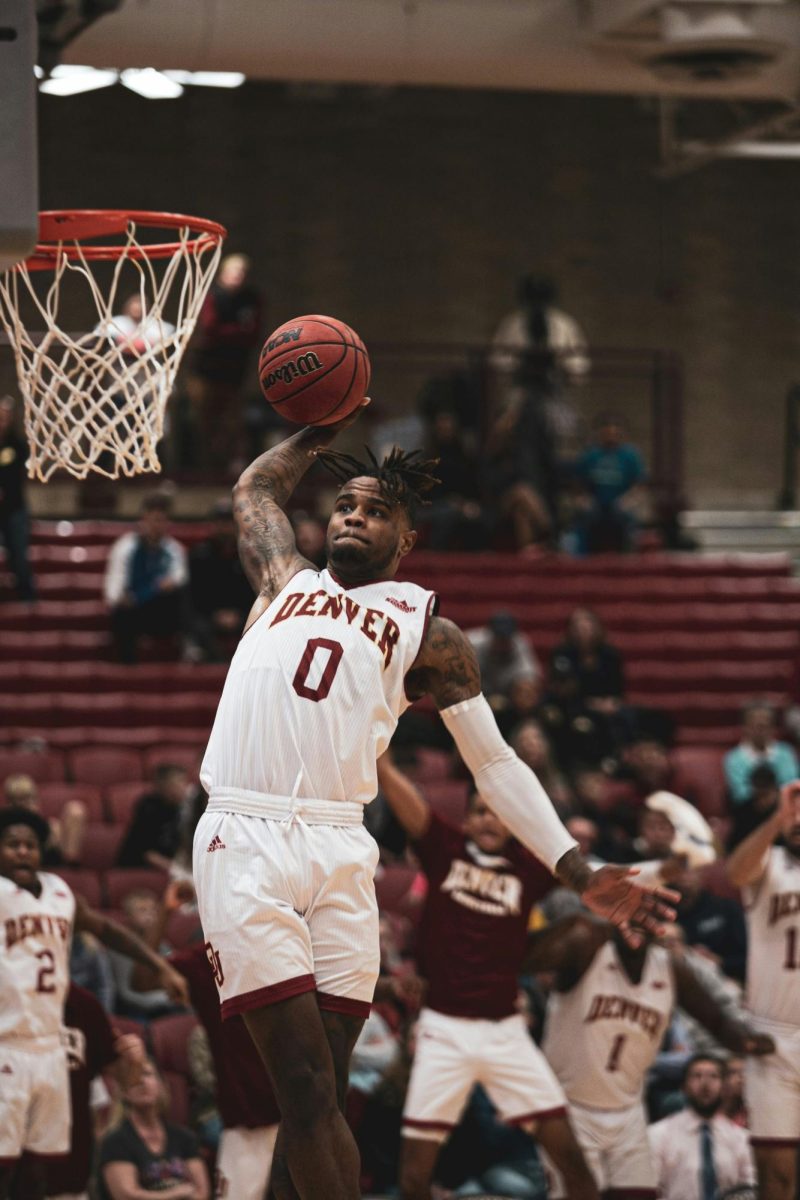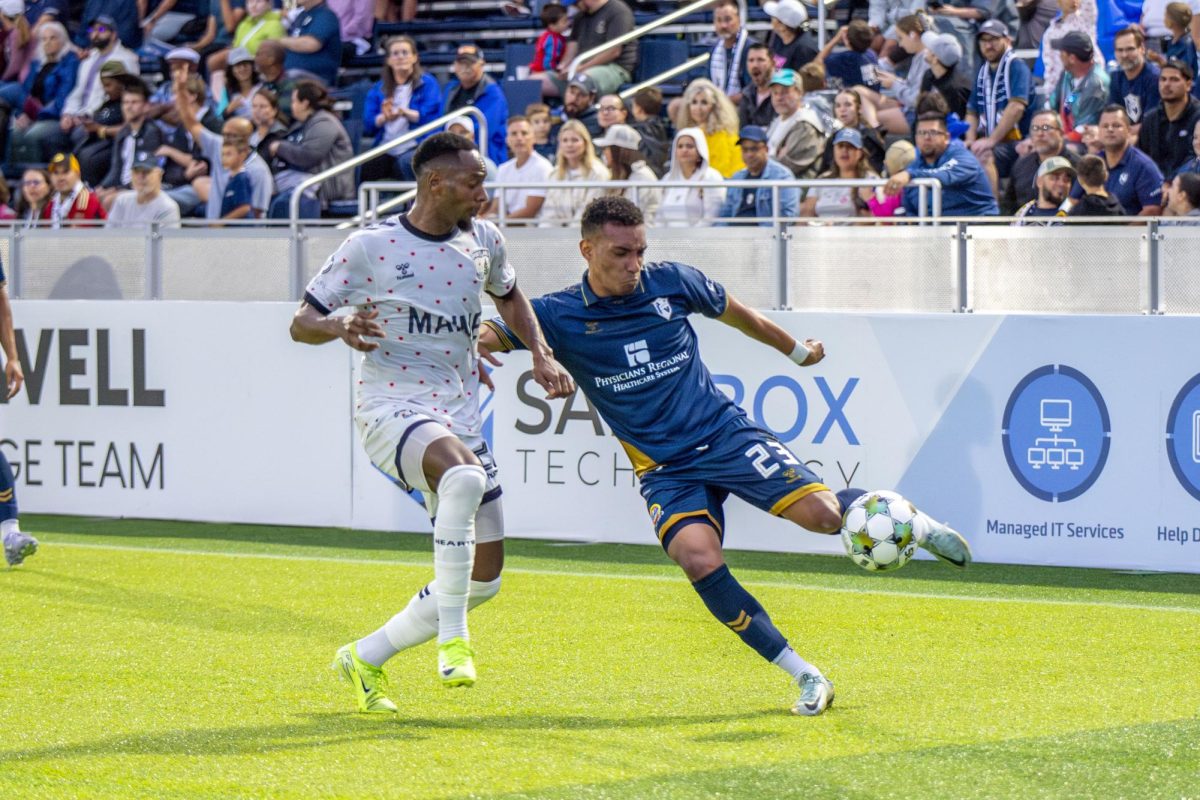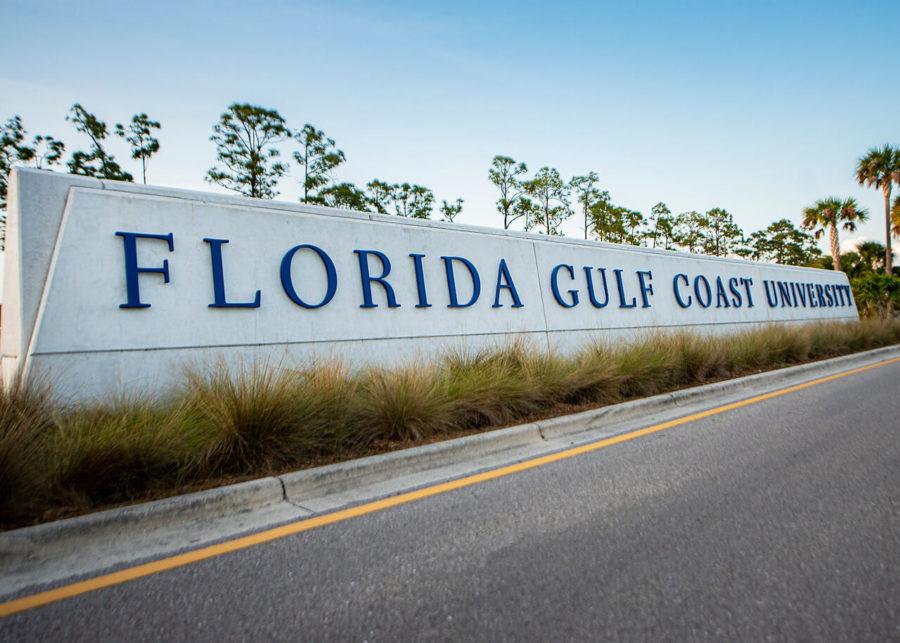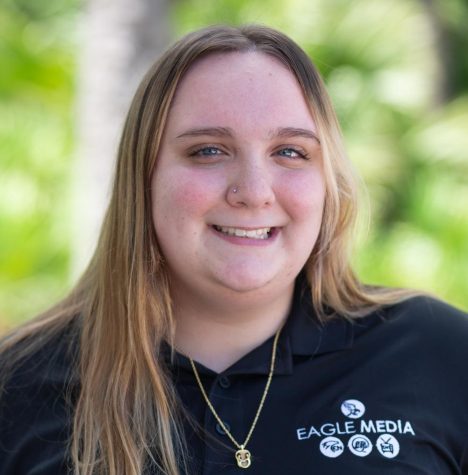Presidential Search Firm Welcomes Community Commentary Prior to Pursuing Candidates
February 17, 2023
With the continuation of the search for FGCU’s next president, the Presidential Search Advisory Committee switched from the search firm AGB Search to Greenwood Asher & Associates.
Jim Johnsen, Ed.D. and Julie Schrodt hosted three presidential search listening sessions, where they proposed questions to those who tuned in.
“The critical first step in any relationship is listening and then certainly the case in a search process,” Johnsen said.
GA&A is in charge of going through presidential candidates to propose to the PSAC.
“We’re based in Florida,” Johnsen said. “We operate nationally, we’ve completed over 2,000 executive searches in higher ed., 800 of which were for presidents. And over 75 of those searches have been in Florida, so we’re pretty proud of that record.”
Schrodt welcomes questions, comments, and concerns to be submitted to their email addresses: jimjohnsen@greenwoodsearch.com or julieschrodt@greenwoodsearch.com. She also said that they accept recommendations or nominations for presidential candidates and share the opportunity with them.
“We cannot reiterate how important these sessions have been in you wouldn’t believe it, but over 75 individuals have attended across three sessions,” Schrodt said.
Greenwood Asher & Associates will gather presidential candidates in two ways, by putting together a traditional ad and by segmenting the market.
“We go out and target individuals whom we think, after listening to you, would be the best option for carrying on the traditions here at Florida Gulf Coast University,” Schrodt said.
Johnsen and Scrodt asked the same five questions in the sessions to different groups of faculty and staff members.
What must the president accomplish in the next three to five years?
Cori Bright-Kerrigan, the director of Adaptive Services/ADA Coordinator, said she hopes the next president will allocate more resources for all divisions of the university.
“We do not have enough resources to continue the growth we have established in the 25 years we’ve been around,” Merri Incitti, the director of Accreditation and Assessment.
Allison Bacigalupi, the director of Exploratory Advising, said that the rise of minimum wage rising one dollar annually until it reaches fifteen dollars will cause compression full-time staff that “may not, unfortunately, make much more than that.”
“That becomes a resource issue to make sure that as wages increase, we are being mindful of others who may need this kind of thing,” Bacigalupi said.
Kiley Barnett, FGCU’s Complete student navigator, addresses the universities’ youth and how it differs from larger universities like UF. She hopes a president can establish this identity.
“A president can help us define the type of students we want to serve as a regional institution, and approving policies and procedures that match that type of student and being okay with whatever that type of student is,” Barnett said. “Because it’s not going to be the same type of student that UF gets. And I think that that is an opportunity for us more than anything, but it has to be established.”
Rebecca Jones, the director of Early College Programs, said the change in legislation has put pressure on higher education.
“I think right now, we feel a lot of pressure and a lot of concern in terms of where the legislature is going and I think our president needs to be able to advocate for FGCU effectively but also, you know, partner with our other regional comprehensives,” Jones said.
Bacigalupi said higher education in Florida is a challenge for many reasons.
“Performance based funding is a constant challenge because you have institutions that aren’t necessarily similar to each other, competing with each other. That is a challenge,” Bacigalupi said. “The political climate of Florida is a challenge and what that means down the pike.”
Jennifer Fulwider, Instructor I in Teacher Education, said that she wants a president who will fight again the “legislative nightmare coming our way.”
Rebecca Totaro, the associate dean and professor in the College of Arts & Sciences, mentioned the emerging Hispanic Serving Institution (HSI) that FGCU is becoming.
“I think in five years, we would hope to be not just a Hispanic Serving Institution, but also to have more of the systems in place to support that population as well as the other populations that as a regional institution we have traditionally served, so the needs of our Southwest Florida community,” Emily Nanna, assistant director of Institutional Equity & Compliance and senior deputy Title IX coordinator, said.
Christopher Blakely, the assistant vice president/dean of students for Campus Life, believes establishing a strategic plan is critical to FGCU’s future.
“That will outline our commitment to those efforts of becoming a Hispanic Serving Institution and not just a Hispanic populated institution,” Blakely said. “I think it’s quite important that we not just seek out a designation for availability of grant funding, but that we actually are serving our community.”
What are the most significant opportunities and challenges the next president must address within the first two years?
Zachry Gelow, the coordinator of Clinical Affairs, said with the cost of living increasing, salaries can’t keep up.
“Salaries are going to be something that make it difficult to attract and retain staffing. So, I think we need to be ready to face that challenge because it’s only going to get tougher as more and more people continue to flock to Florida,” Gelow said.
Blakely added last year was the first time in 25 years that the university did a compensation study to establish pay administration guidelines for FGCU. He said it should be revisited.
“I think initially [there was] some good information that was rolled out. However, it’s kind of been a little stagnant from there as it relates to how do we reevaluate individuals who may not [be] being properly placed in the correct grade,” Blakely said. “And then [that] also requires some strategic visiting as well as we have some pay grades that the base salary that are below the minimum of what our state university systems performance-based metrics are requiring of our recent graduates.”
With the popular interest students have in the university, Gelow said it’s bittersweet because there isn’t enough space to host larger classes, as well as housing for the students.
Bacigalupi said that there were conversations in the past about building faculty and staff transitional housing on the land behind West Lake Village.
“We are maxed out on housing, students are on a waitlist constantly,” Bacigalupi said. Due to maxed capacities, prospective faculty and staff members don’t have space on campus to live while finding permanent housing.
Anna Carlin, the instructional tech librarian and member of FGCU’s Board of Trustees, added to the conversation.
“The proposal is still kind of out there and being developed, so nothing has been decided yet but there was a proposal to the Board of Trustees about it,” Carlin said. “I think they kind of sent it back to the drawing board and I think it’s still being worked on but that is an asset that the university has might be able to use.”
Blakely reestablished the need for a president who will stand up to the political landscape that’s impacting higher education and be a champion of academic freedom.
“Right now, we don’t have a ton of support across the region of being bold and staying committed,” Blakely said. “Our current president, President Mike Martin has done phenomenal job of reiterating our commitment to diversity, equity and inclusion.”
Daniel Kern, an assistant professor in the Department of Mathematics, mentioned that he is a part of his college’s Graduate Affairs Committee. FGCU has 26 master’s programs and 7 doctoral programs, which is small compared to other universities. He hopes to see this expand in the future.
“We do not have the standard way of financing graduate education. We don’t have the tuition, the out of state tuition waivers or even in state tuition waivers,” Kern said.
Craig reiterated the opportunity that FGCU has as being on the cusp of becoming a HSI, by not only welcoming Latinx students but retaining them as students.
“…But being mindful to use that funding to really serve the students as opposed to thinking of the golden carrot of getting the funding but not really using it, to keep the students that it’s meant for,” she said.
What professional experiences must the next president have to be a good match with the needs of the university at this time?
Many of the faculty and staff members said they want a president who is an academic.
“Someone who understands what it means to work in higher ed. as a faculty member, which means teaching research and service, which is the trinity of what a faculty member does. Someone who’s been a department chair, who understands what it means to evaluate faculty for promotion,” Melodie Eichbauer, a professor and interim director of the Office of Scholarly Innovation & Student Research, said.
“Someone who maybe has been a dean, as they progress through the academic ranks, so they understand the issues that the rank-and-file faculty are facing and what their daily jobs are, as well as from the middle range of administrator of academic administration. The range that I think is the toughest because you have people from above you imposing issues, and you have people from below you having issues and you’re in the middle of having to navigate that.”
Nanna reiterates that the next president needs to be familiar with characteristics of a diverse institution.
“We’re a regional institution, we’re an emerging HSI. We have specific needs and so not just [someone who] worked at higher ed. at some point, but that this is kind of their passion and their niche, and they understand the role that the institution fills in,” Nanna said.
Regina Beard, the interim director of Research, Scholarship & Instruction, said she hopes the president will be able to navigate Florida politics at a high level given the current political climate.
Debra Giambo, a professor and Program Coordinator in the Department of Teacher Preparation Programs, would like to see a president who will challenge that.
“[There’s a] lack of educational leader’s voices in in that situation. So, it’s a risk and so I would like someone who’s willing to take that risk.”
What personal characteristics do you think the new president needs to have?
Blakely said leadership skills is paramount characteristic for a university president to have.
“As you elevate in leadership, it’s less about your ability to do but your ability to lead others to do,” he said.
Eichbauer hopes for a president who will embrace FGCU’s faculty and student dynamic.
“The university is faculty and students working together for the success of the students, the success of the community for a greater good, and understanding that culture, I think is critical and I would hope that they would embrace that culture,” Eichbauer said.
Jones agrees and wants a president to be a motivator of that.
“Everyone is truly working together because ultimately, we are here to serve those students,” Jones said. “And it’s not just one area’s responsibility, it’s everybody’s and we need to all feel that way.”
Bright-Kerrigan has been at the university for 21 years. She hopes the next president will embrace FGCU’s hometown feel.
“Even though we’ve grown significantly, we still have that hometown, family type feel, where we want the students to be known as their names and colleagues are not just numbers on a computer,” she said.
Bacigalupi admires how past presidents have been visible on campus during her 15 years and counting at FGCU. She notably said former President Bradshaw and President Martin drive golf carts around campus and engage with the campus community. Davidson added that Martin spends time at the coffee shops on campus and is willing to talk with whoever he crosses paths with.
“They respect and value what you do, no matter where you are on the hierarchy of things. I’m not very high on the hierarchy of things. I’m pretty close to the bottom, but I think for me something that I think will help FGCU continue to grow and evolve and do good things is if we can somehow become comfortable with bad news or with things that may be hard or uncomfortable,” she said.
What are your points of pride?
Blakely said his position is more than just a job, he recognizes that his decisions impact those around him.
“If you look at the statistics, roughly between 32 and 40% of our students are first generation college students depending on the definition that we identify,” he said. “So we are not only changing the lives of individuals but generationally. So I think that’s really important with our demographics that we keep that in mind.”
Jaclyn Chastain, coordinator I for Academic and Curriculum Support, takes pride in FGCU’s sustainability efforts, including the food forest and LEED certified buildings.
“We have a beautiful campus that that usually is enough to attract people to at least come and consider jobs here,” she said.
Participants shared that they are prideful of being a part of a locally respected university.
“I can see my son’s former baseball teammates in the hallway and say hello, and it feels like a small enough university, campus that we can really connect with, specifically some of our local high schoolers that choose to come here because it’s a good school and it’s close enough to be affordable. And I think that it’s really nice to have such a good university right in our backyard,” Craig said.
Lyndsay Rhodes, associate professor in the Department of Biological Sciences, also appreciates the class sizes and seeing students grow throughout their time at FGCU.
“I have many students who I’ve remained in contact with years and years after they’ve left the university and they think enough to reach back out to faculty and let them know what they’re doing, their success stories, what’s going on with their life and continue those mentorship relationships for many years, but also the ability to engage in a wide variety of research,” Rhodes said.
Jones said that FGCU’s experiences outside of the classroom, both social and academic relationships, are unique to the university.
“I think because of our student population, being mostly undergraduate, our students do have a lot of opportunity to engage in research. Our service-learning program is top notch in terms of our outreach with community, so I think the true experience that our students get in and outside the classroom is top notch,” Jones said.
Vic Jones, a university archivist, shared that she is processing foundation documents of FGCU.
“I would like to see a president who is committed to one of the founding principles of the institution, which would be sustainability, and continue to build in that in that vein,” she said.
Bacigalupi acknowledges that she takes pride in the students she encounters every day, and they keep her coming back to work.
“This university has done so much for this area, I mean in terms of giving people something, giving people some hope and things to do, jobs,” Carlin said. “Those of us that work here, and the students that are coming through, I see really good, high performing students.”




























